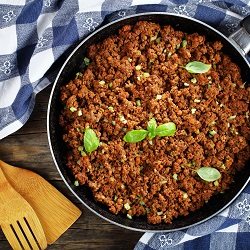Goal 4: Straighten up those fats!
Why do this?
Your body needs fat. That’s right – it actually needs it. And I’ll even go so far as to say that it’s the preferred source of energy because when it burns fat, it burns a cleaner, more steady fuel that in turn promotes health in the body (link to “benefits of a fat metabolism”). The main issue is that when both carb and fat are consumed, the body is going to turn the carbs into energy first because it has the ability to store fat, but not the ability to store carbs. So to prevent future starvation your mitochondria first burn the carbs you eat and if it needs more fuel it will then burn the fat as needed.
Most of America has been solely on a carb metabolism for over a generation. I have been my whole life until I made this switch. I personally believe our bodies are most efficient when we use both. But if someone has pretty much been only burning carbs for their whole life, they almost have to force their body to switch into a fat metabolism. It’s a harder change at first. In my experience, it became much easier to switch back and forth from burning fats to burning carbs after I gave myself a long stretch of mainly just burning fat.
Whether you desire to be on a carb metabolism or a fat metabolism, or somewhere in between, it’s still important to give your body fat. The right kind of fat.
Two steps:
Use the right kinds of fat
Cook them at the right temperature
Even if a fat is the right kind cooking it at a temperature that’s too high will cause the fat to break down and form free radicals. Free radicals cause stress on the body and have been linked to many issues from inflammation to cancer.
Since Dr. Axe wrote a great article on this that I couldn’t hope to beat, check it out for more information on what constitutes a healthy fat and how to make sure you’re getting the right kind.
In my kitchen I use:
Grass fed butter
Grass fed ghee
Unrefined organic virgin coconut oil
Avocado oil
Beef and bacon fat
Olive oil (raw)






